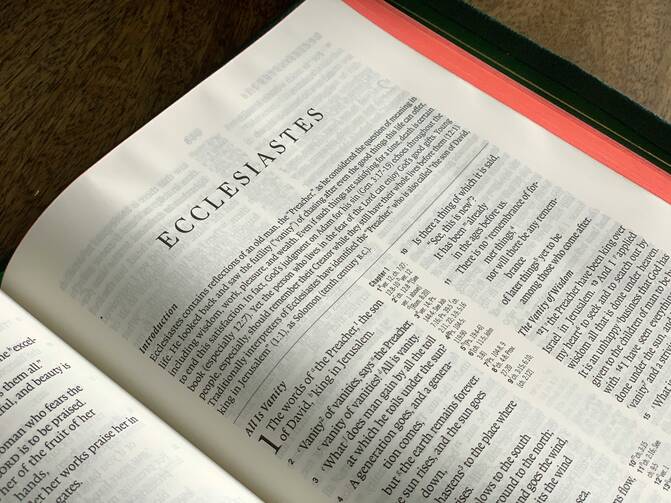A Reflection for the Memorial of St. Vincent de Paul
There is an appointed time for everything,
and a time for every thing under the heavens.
A time to be born, and a time to die;
a time to plant, and a time to uproot the plant.
A time to kill, and a time to heal;
a time to tear down, and a time to build.
A time to weep, and a time to laugh;
a time to mourn, and a time to dance…
He has made everything appropriate to its time,
and has put the timeless into their hearts,
without man’s ever discovering,
from beginning to end, the work which God has done.
Today’s readings, to me, are about mystery. Pete Seeger’s famous folk adaptation of the first reading from Ecclesiastes echoes in my head in moments when things don’t make sense to me. It offers no explanation, only a confident statement that this is the way things are: There is “a time to be born, a time to die, a time to plant, a time to reap…”
It doesn’t comfort me, though; in fact, it sometimes frustrates me that the song goes on like a lullaby, saying there is “a time to kill,” “a time for war,” or “a time for hate” when these are things I have a hard time imagining as parts of God’s plan. And yet, these are realities we live with. Trying to discern God’s role in them leads us to the theodicy question, one of the most fundamental questions of anyone grappling with faith: How can a God who is all-good and all-powerful allow evil to exist?
Ecclesiastes offers no answers. It only hints that God is at work in our hearts, placing in them something timeless that goes behind all the things, like life and death, for which there is “a time.” To frustrate us further, perhaps, Ecclesiastes tells us that we will never understand: God “has put the timeless into their hearts, without man’s ever discovering, from beginning to end, the work which God has done.”
As a reporter, I am ill-equipped to answer these questions, especially in pages that have been graced by some of the greatest theological minds of the last century. So instead, I will quote one of the only sincere lines from the sardonic musical The Book of Mormon, when Joseph Smith is about to die without having shown anyone the golden plates that can prove the truth of his prophecies: “They’ll have no proof I was telling the truth or not! They'll have to believe it just... 'cause. Oh! I guess that's kind of what you were going for.”








